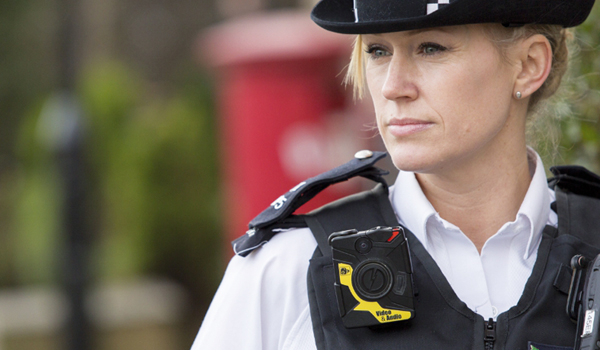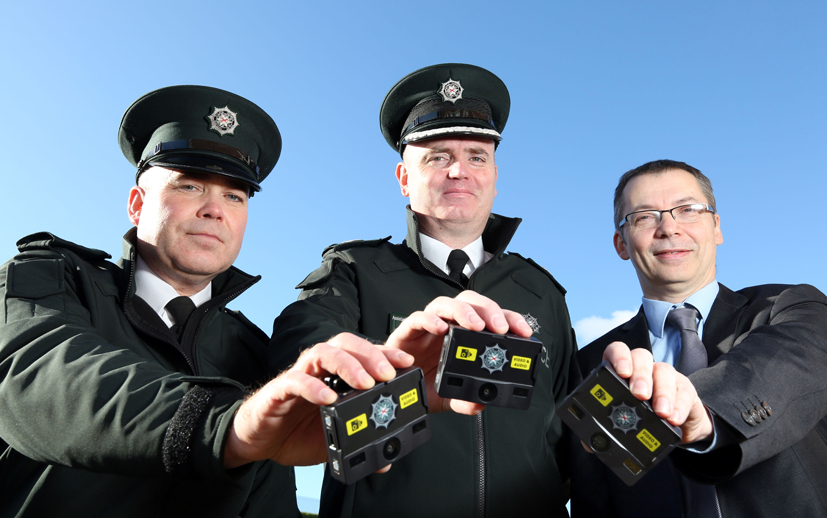Mobile revolution
The distribution of £50 million funding to 27 police forces for a total of 10,000 handheld computers has been finalised. The aim is change to the way forces operate, enabling them to reduce bureaucracy and work more efficiently by increasing the time they spend on frontline duties by giving them better access to information whilst on the street, enabling them to provide a better service to the public.

The distribution of £50 million funding to 27 police forces for a total of 10,000 handheld computers has been finalised. The aim is change to the way forces operate, enabling them to reduce bureaucracy and work more efficiently by increasing the time they spend on frontline duties by giving them better access to information whilst on the street, enabling them to provide a better service to the public.
In September 2007, the then-Prime Minister Tony Blair pledged £50 million to improve access to technology by frontline police officers and staff by having 10,000 handheld computer devices on the streets in England and Wales within a year.
That pledge has now become reality for 27 forces after Policing Minister Tony McNulty, in conjunction with the Association of Chief Police Officers (ACPO), the Association of Police Authorities (APA) and the National Policing Improvement Agency (NPIA), finalised the distribution of £50 million funding for the purchase of 10,000 handheld computers.
Mr McNulty said: We are investing in new technology to make crime fighting more effective and to save officers time. This £50 million capital fund will deliver 10,000 mobile data devices to forces. It is just one element of a range of improvements we are delivering to cut unnecessary bureaucracy, exploit new technologies and enable police officers to spend more time on frontline policing.
For example, at present, for every officer running a check on the Police National Computer (PNC) a second member of staff needs to work in the control room to process the request effectively two people doing the same job. With remote access through mobile data the officer on the frontline will be able to complete these checks independently, dramatically reducing the amount of time control room staff spend helping with simple information checks.
Richard Earland, chief information officer at the NPIA, added: Officers who have access to databases, such as the PNC, command and control and intelligence systems while out on patrol, will spend less time returning to the station and more time on the frontline, therefore increasing visibility and reassuring the public.
This builds on previous work carried out on a small scale and will streamline access to information at the point of operational decision making.
The Home Office/NPIA blueprint hopes to have a fully functioning mobile data platform for police forces ahead of the Olympics in 2012, enabling officers to take fingerprints in the street; give access to hundreds of thousands of mug shots held on a national database; and examine closed-circuit television images recorded at crime scenes.
A total of 38 forces across England and Wales made bids for funding. The 11 which were unsuccessful are now working with the NPIA to help them take forward deployment of mobile information devices in the future.
One of the biggest winners was a collaborative bid by the East Midlands police forces which has secured funding of £8.3 million that will go towards buying handheld computers, training, infrastructure and other associated costs.
Frontline police officers and staff in Derbyshire, Leicestershire, Lincolnshire, Northamptonshire and Nottinghamshire will receive nearly 4,000 handheld and vehicle mounted computers.
By the end of the financial year 2008/09, nearly 6,500 officers and staff will be trained how to use the mobile data devices across the region.
The systems that will be used by all five police services in the East Midlands, which will vary from force to force, consist of handheld BlackBerrys, mobile data terminals (MDTs) for use in police vehicles and personal digital assistants (PDAs), giving officers and staff to access key information at the touch of a button.
Martin Hansen, director of information for Nottinghamshire Police and regional lead for mobile data, said: Mobile data is cutting-edge technology that will see the region at the forefront of modern-day policing. Handheld and vehicle-moun



